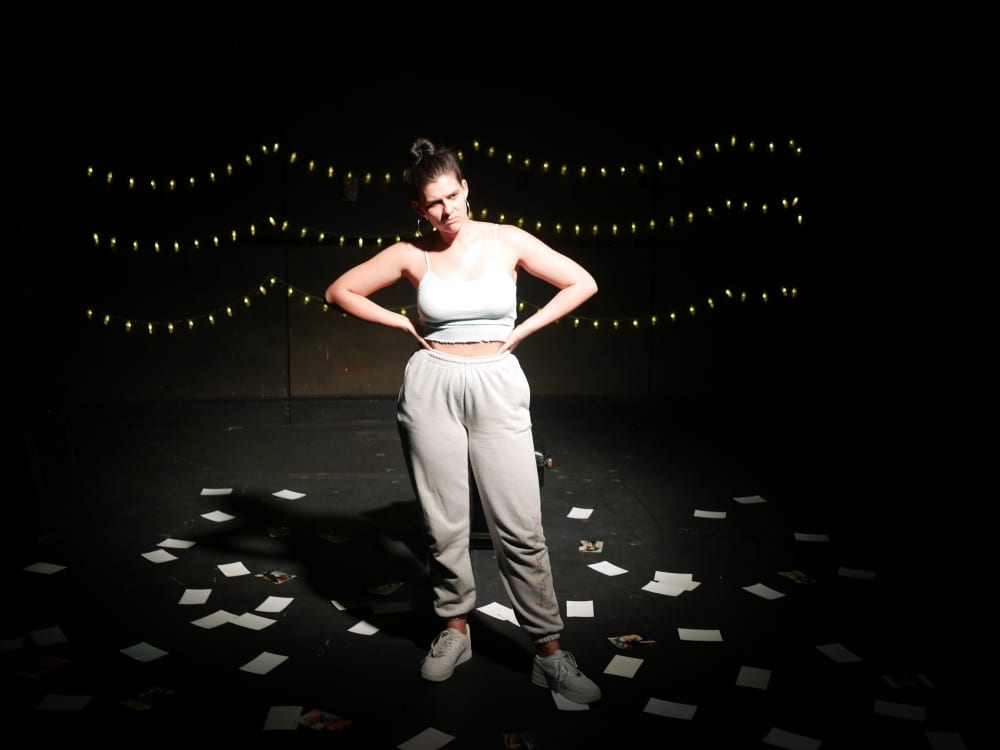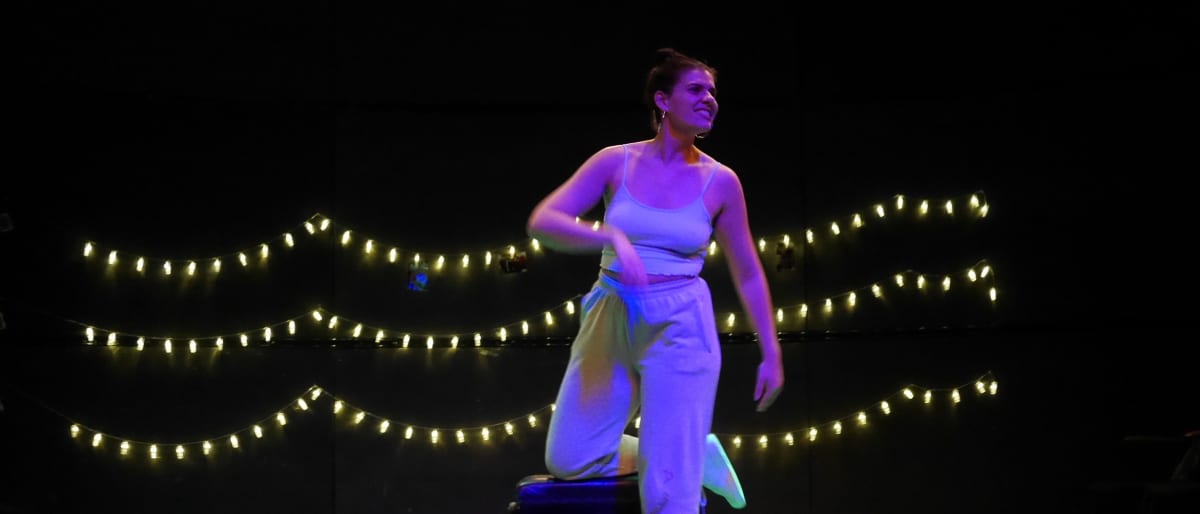Forgetting Heledd is a very powerful piece of theatre, telling the story of a family coping with early onset dementia through the eyes and the words of the 19 year old daughter of the ‘victim’. As most of us will already have had (or will in the future have) the experience of loving someone with dementia, the power of the play lies in the brilliant performance of Hannah Dando as Heledd and in the perceptively drawn glimpses of her life conjured up by writer Rhys J Edwards. The mood swings between love and fury as Heledd comes to terms with the conflict between her wish to do the best for her mother and the impact on her own dreams of escaping the Welsh valleys where she has been brought up are full of emotional truth.
The structure of the play is simple – a one-woman monologue with Dando speaking directly to the audience, mostly as Heledd herself but occasionally speaking words from the mouths of other members of her family. Heledd is waiting to take up a place at university, and working in a care home in the hopes that, when she gets there, she can transfer to a course that will give her the chance to qualify as a doctor. She is brave and ambitious; “no-one from Treorchy gets to be a doctor” but Heledd is determined to overcome this barrier. Then her 49 year old mother is diagnosed with early onset dementia and it becomes clear that the burden of care will fall on Heledd – typically not her father, her step-father, or her brother. The play presents us with a series of brief scenes that show the ways that this impacts on the young woman and the wide and extreme range of her reactions. She says “I am an evil bitch” but of course it is a very complex set of feelings and actions that we witness. It all has the ring of hard and painful truth.

Hannah Dando absolutely grips the audience in her hands for the full duration of the drama. The serious moments as she struggles to face up to the future without her desired career and as she helps her mother to come to terms with what is happening to her are heart-rending – the comic moments as she parties with her best friend and gets off her head on drugs and booze like teenagers anywhere, and treats us to some dreadful karaoke, are just as significant. These scenes, painting a rounded and truthful picture of a young woman at a turning point in her life, are brilliantly realised. This is a bravura performance.
Given the simplicity of story, the directorial touches added by Samara Gannon are very telling and well chosen. The stage is strewn with photographs that Heledd gradually picks up and clips on lines strung across the back of the stage – a telling image that speaks to the way that dementia can lead to fragmentary memories that are unpredictable in their survival. Even the momentary changes of lighting that alerts us to a shift in the story sequence are well chosen and managed.
In a former life I worked with people with this condition and with their families and the clever introduction into the story of the role of “expert by experience” that is increasingly important in the way that services are planned and delivered shows that Rhys Edwards really does know what is going on this neglected part of our public services. But though the play is educational, its real value is in the sharp depiction of the life of one young person facing life challenges that more and more people in our communities will face. Though its subject matter is at times bleak, the play is anything but. It is an uplifting picture of love and resilience.

